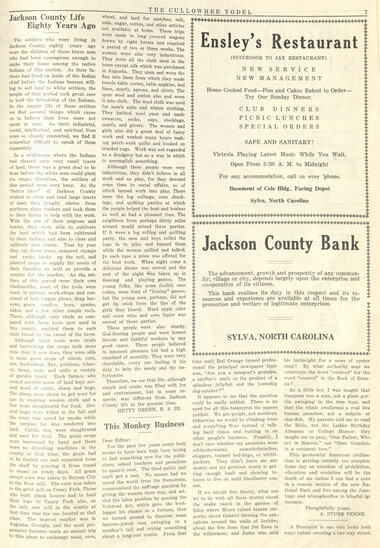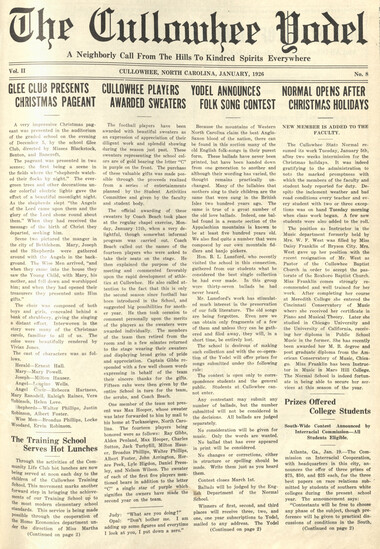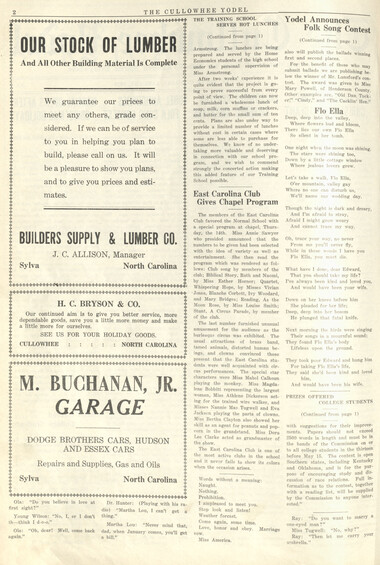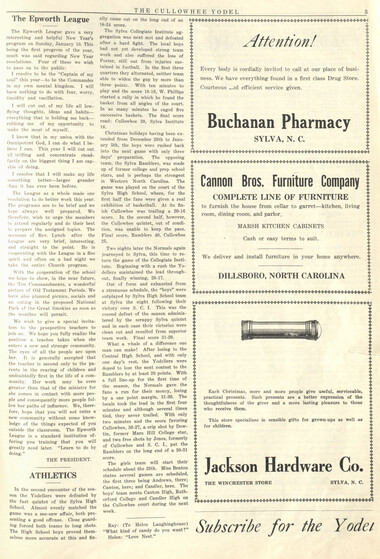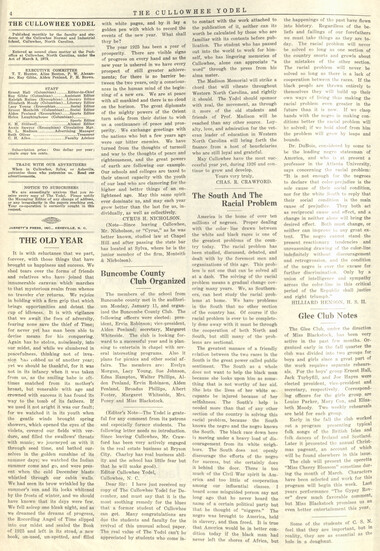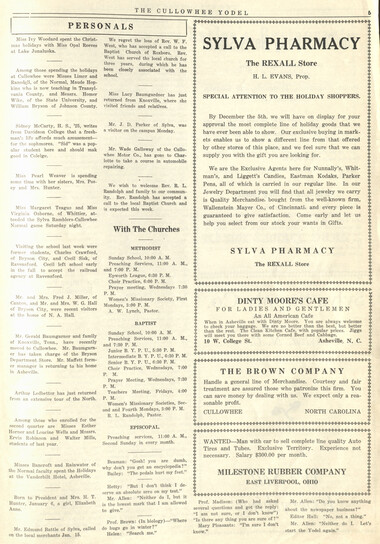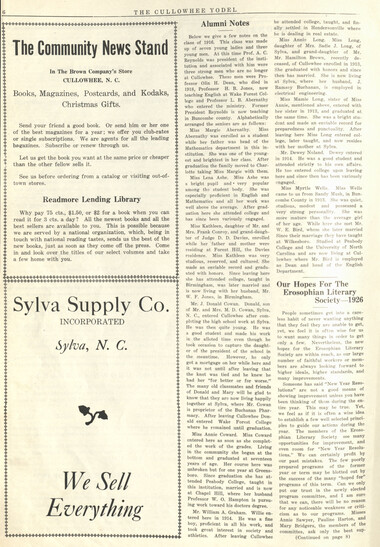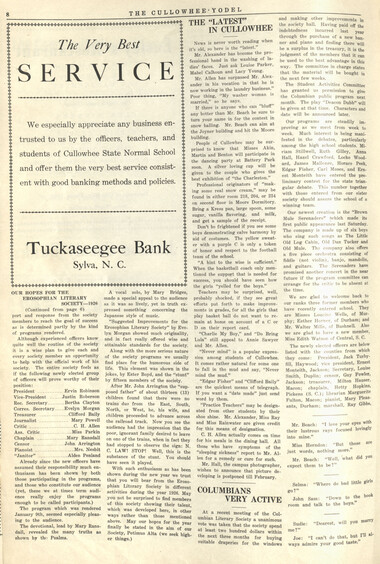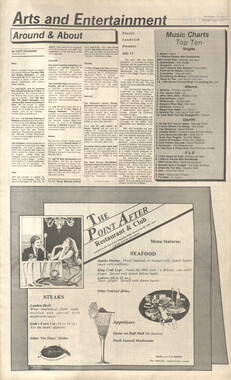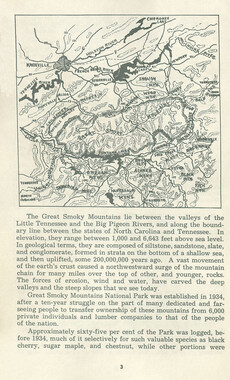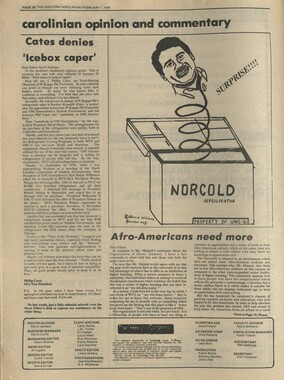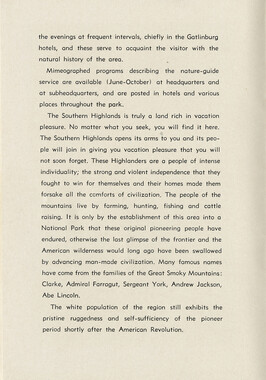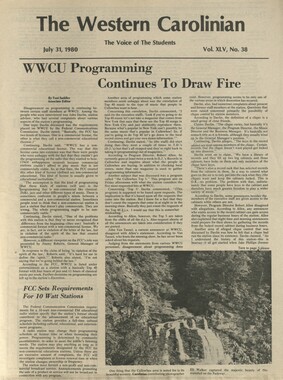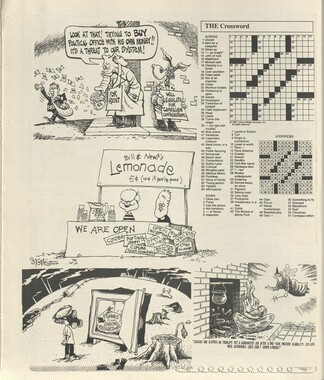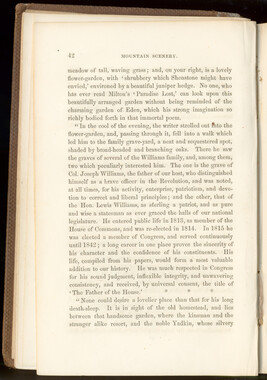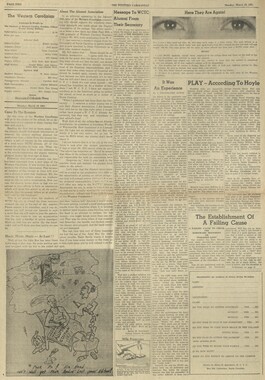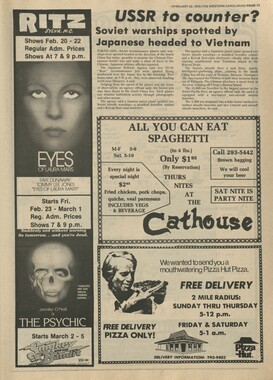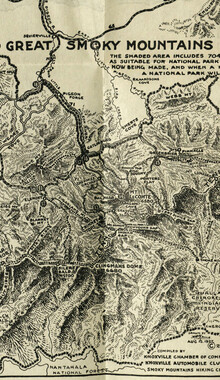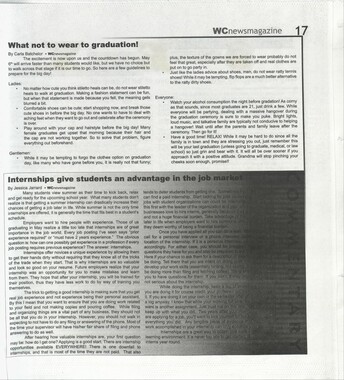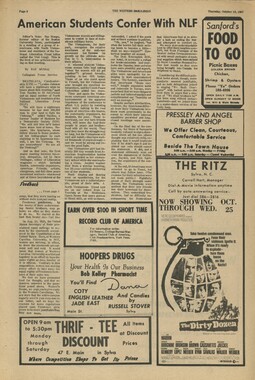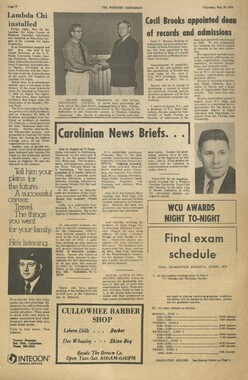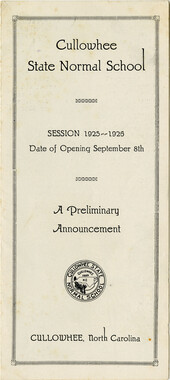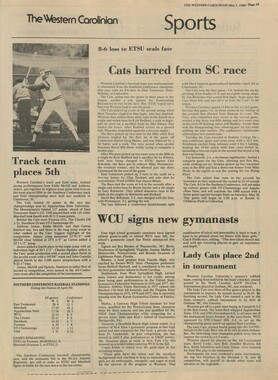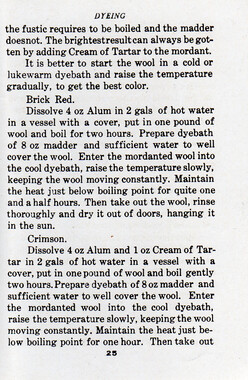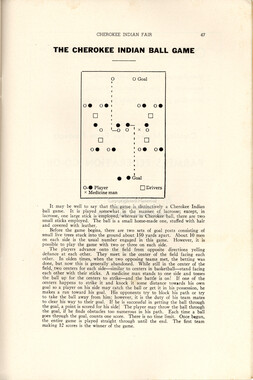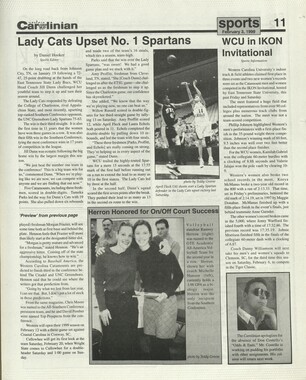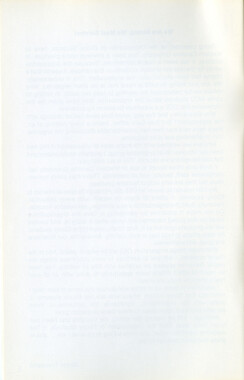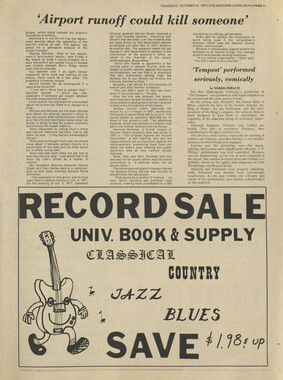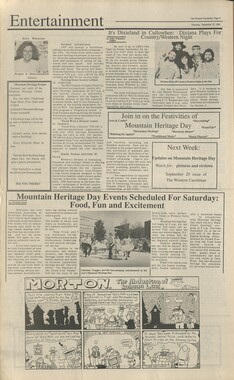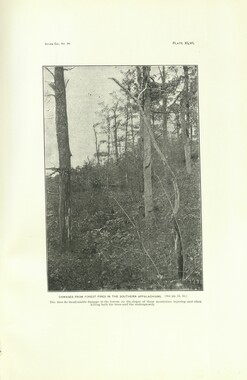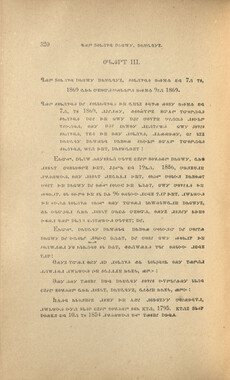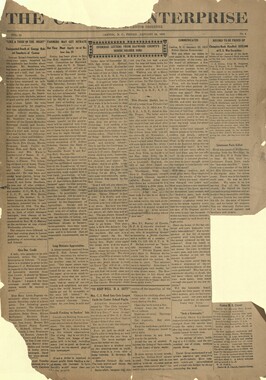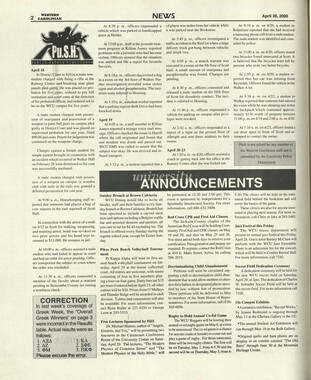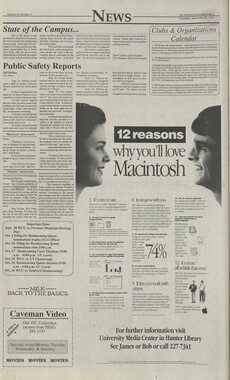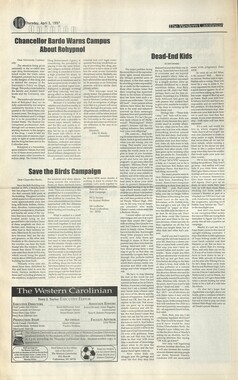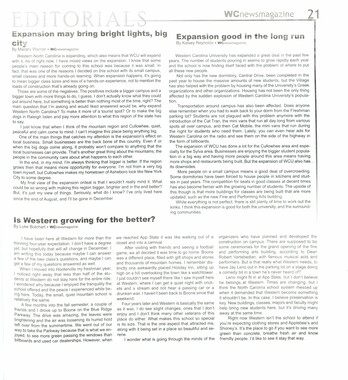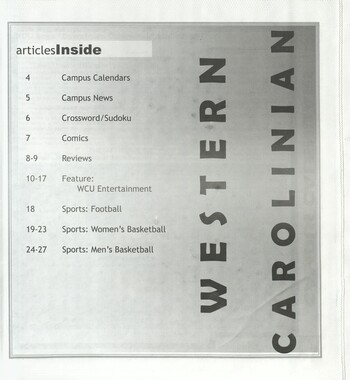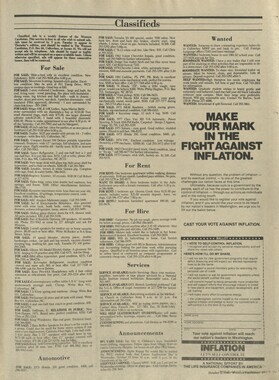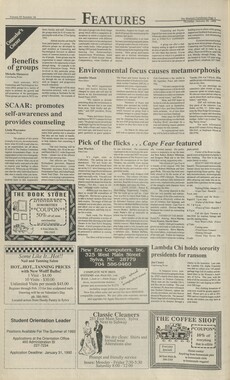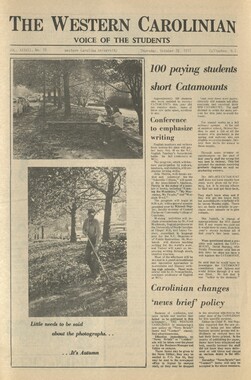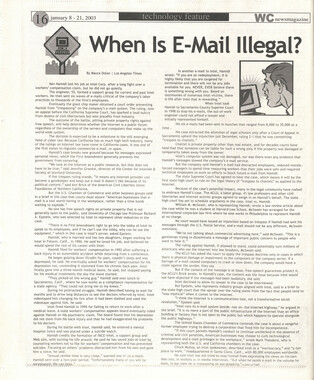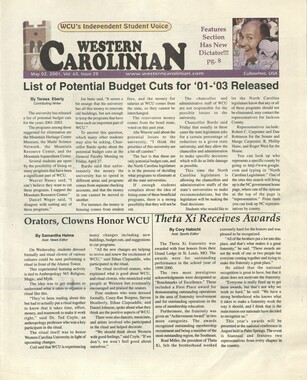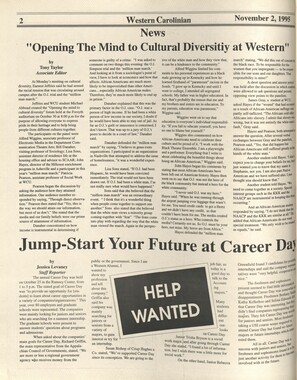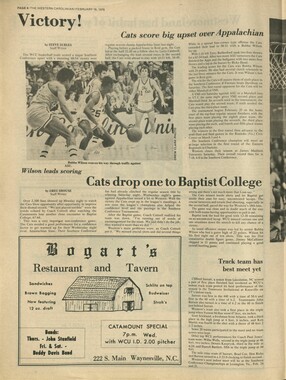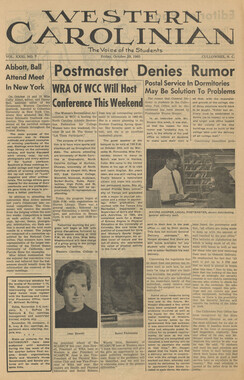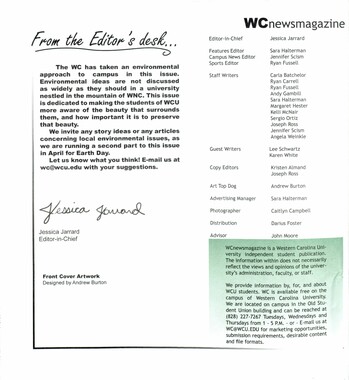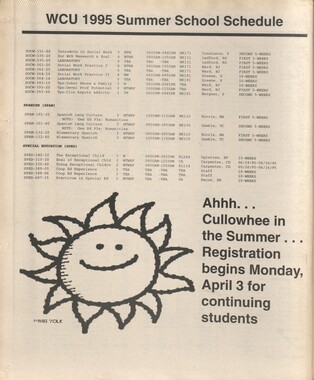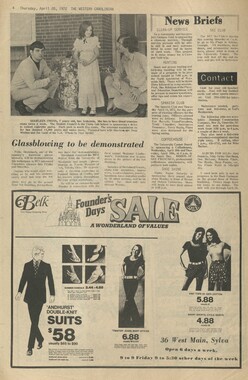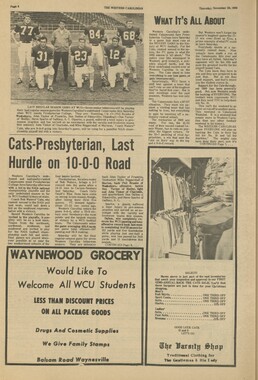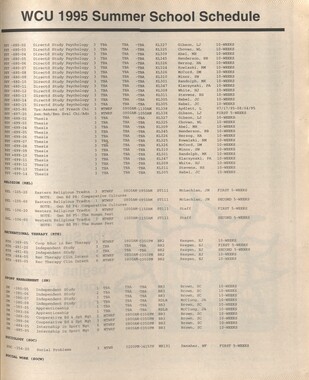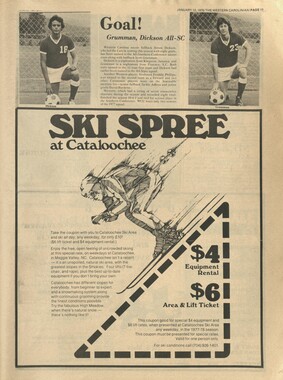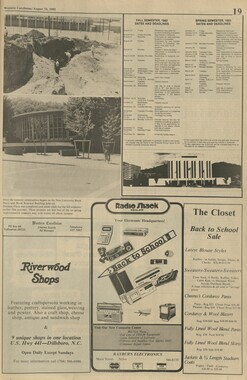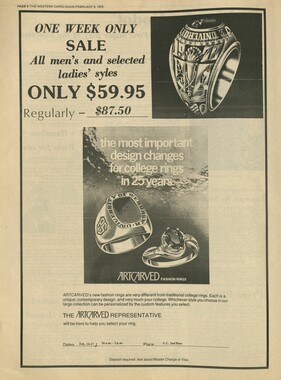Western Carolina University (21)
View all
- Canton Champion Fibre Company (2308)
- Cherokee Traditions (291)
- Civil War in Southern Appalachia (165)
- Craft Revival (1942)
- George Masa Collection (137)
- Great Smoky Mountains - A Park for America (3182)
- Highlights from Western Carolina University (422)
- Horace Kephart (998)
- Journeys Through Jackson (159)
- LGBTQIA+ Archive of Jackson County (90)
- Oral Histories of Western North Carolina (318)
- Picturing Appalachia (6617)
- Stories of Mountain Folk (413)
- Travel Western North Carolina (153)
- Western Carolina University Fine Art Museum Vitreograph Collection (129)
- Western Carolina University Herbarium (92)
- Western Carolina University: Making Memories (738)
- Western Carolina University Publications (2491)
- Western Carolina University Restricted Electronic Theses and Dissertations (146)
- Western North Carolina Regional Maps (71)
- World War II in Southern Appalachia (131)
University of North Carolina Asheville (6)
View all
- Allanstand Cottage Industries (62)
- Appalachian National Park Association (53)
- Bennett, Kelly, 1890-1974 (1463)
- Berry, Walter (76)
- Brasstown Carvers (40)
- Carver, George Washington, 1864?-1943 (26)
- Cathey, Joseph, 1803-1874 (1)
- Champion Fibre Company (233)
- Champion Paper and Fibre Company (297)
- Cherokee Indian Fair Association (16)
- Cherokee Language Program (22)
- Crowe, Amanda (40)
- Edmonston, Thomas Benton, 1842-1907 (7)
- Ensley, A. L. (Abraham Lincoln), 1865-1948 (275)
- Fromer, Irving Rhodes, 1913-1994 (70)
- George Butz (BFS 1907) (46)
- Goodrich, Frances Louisa (120)
- Grant, George Alexander, 1891-1964 (96)
- Heard, Marian Gladys (60)
- Kephart, Calvin, 1883-1969 (15)
- Kephart, Horace, 1862-1931 (313)
- Kephart, Laura, 1862-1954 (91)
- Laney, Gideon Thomas, 1889-1976 (439)
- Masa, George, 1881-1933 (61)
- McElhinney, William Julian, 1896-1953 (44)
- Niggli, Josephina, 1910-1983 (10)
- North Carolina Park Commission (105)
- Osborne, Kezia Stradley (9)
- Owens, Samuel Robert, 1918-1995 (11)
- Penland Weavers and Potters (36)
- Roberts, Vivienne (15)
- Roth, Albert, 1890-1974 (142)
- Schenck, Carl Alwin, 1868-1955 (1)
- Sherrill's Photography Studio (2565)
- Southern Highland Handicraft Guild (127)
- Southern Highlanders, Inc. (71)
- Stalcup, Jesse Bryson (46)
- Stearns, I. K. (213)
- Thompson, James Edward, 1880-1976 (226)
- United States. Indian Arts and Crafts Board (130)
- USFS (683)
- Vance, Zebulon Baird, 1830-1894 (1)
- Weaver, Zebulon, 1872-1948 (58)
- Western Carolina College (230)
- Western Carolina Teachers College (282)
- Western Carolina University (2008)
- Western Carolina University. Mountain Heritage Center (18)
- Whitman, Walt, 1819-1892 (10)
- Wilburn, Hiram Coleman, 1880-1967 (73)
- Williams, Isadora (3)
- Cain, Doreyl Ammons (0)
- Crittenden, Lorraine (0)
- Rhodes, Judy (0)
- Smith, Edward Clark (0)
- Appalachian Region, Southern (3032)
- Asheville (N.C.) (1945)
- Avery County (N.C.) (26)
- Blount County (Tenn.) (200)
- Buncombe County (N.C.) (1680)
- Cherokee County (N.C.) (283)
- Clay County (N.C.) (556)
- Graham County (N.C.) (247)
- Great Smoky Mountains National Park (N.C. and Tenn.) (535)
- Haywood County (N.C.) (3573)
- Henderson County (N.C.) (70)
- Jackson County (N.C.) (4926)
- Knox County (Tenn.) (61)
- Knoxville (Tenn.) (21)
- Lake Santeetlah (N.C.) (14)
- Macon County (N.C.) (421)
- Madison County (N.C.) (216)
- McDowell County (N.C.) (39)
- Mitchell County (N.C.) (135)
- Polk County (N.C.) (35)
- Qualla Boundary (982)
- Rutherford County (N.C.) (78)
- Swain County (N.C.) (2187)
- Transylvania County (N.C.) (270)
- Watauga County (N.C.) (12)
- Waynesville (N.C.) (86)
- Yancey County (N.C.) (72)
- Aerial Photographs (3)
- Aerial Views (60)
- Albums (books) (4)
- Articles (1)
- Artifacts (object Genre) (228)
- Bibliographies (1)
- Biography (general Genre) (2)
- Cards (information Artifacts) (38)
- Clippings (information Artifacts) (193)
- Copybooks (instructional Materials) (3)
- Crafts (art Genres) (622)
- Depictions (visual Works) (21)
- Design Drawings (1)
- Digital Moving Image Formats (2)
- Drawings (visual Works) (185)
- Envelopes (115)
- Exhibitions (events) (1)
- Facsimiles (reproductions) (1)
- Fiction (general Genre) (4)
- Financial Records (12)
- Fliers (printed Matter) (67)
- Glass Plate Negatives (381)
- Guidebooks (2)
- Internegatives (10)
- Interviews (823)
- Land Surveys (102)
- Letters (correspondence) (1070)
- Manuscripts (documents) (618)
- Maps (documents) (177)
- Memorandums (25)
- Minutes (administrative Records) (59)
- Negatives (photographs) (6192)
- Newsletters (1290)
- Newspapers (2)
- Notebooks (8)
- Occupation Currency (1)
- Paintings (visual Works) (1)
- Pen And Ink Drawings (1)
- Periodicals (194)
- Personal Narratives (10)
- Photographs (12977)
- Plans (maps) (1)
- Poetry (6)
- Portraits (4573)
- Postcards (329)
- Programs (documents) (181)
- Publications (documents) (2444)
- Questionnaires (65)
- Relief Prints (26)
- Sayings (literary Genre) (1)
- Scrapbooks (282)
- Sheet Music (2)
- Slides (photographs) (402)
- Songs (musical Compositions) (2)
- Sound Recordings (802)
- Specimens (92)
- Speeches (documents) (18)
- Tintypes (photographs) (8)
- Transcripts (329)
- Text Messages (0)
- A.L. Ensley Collection (275)
- Appalachian Industrial School Records (7)
- Appalachian National Park Association Records (336)
- Axley-Meroney Collection (2)
- Bayard Wootten Photograph Collection (20)
- Bethel Rural Community Organization Collection (7)
- Blumer Collection (5)
- C.W. Slagle Collection (20)
- Canton Area Historical Museum (2110)
- Carlos C. Campbell Collection (564)
- Cataloochee History Project (64)
- Cherokee Studies Collection (4)
- Daisy Dame Photograph Album (5)
- Daniel Boone VI Collection (1)
- Doris Ulmann Photograph Collection (112)
- Elizabeth H. Lasley Collection (1)
- Elizabeth Woolworth Szold Fleharty Collection (4)
- Frank Fry Collection (95)
- George Masa Collection (173)
- Gideon Laney Collection (452)
- Hazel Scarborough Collection (2)
- Hiram C. Wilburn Papers (28)
- Historic Photographs Collection (236)
- Horace Kephart Collection (861)
- Humbard Collection (33)
- Hunter and Weaver Families Collection (1)
- I. D. Blumenthal Collection (4)
- Isadora Williams Collection (4)
- Jesse Bryson Stalcup Collection (47)
- Jim Thompson Collection (224)
- John B. Battle Collection (7)
- John C. Campbell Folk School Records (80)
- John Parris Collection (6)
- Judaculla Rock project (2)
- Kelly Bennett Collection (1482)
- Love Family Papers (11)
- Major Wiley Parris Civil War Letters (3)
- Map Collection (12)
- McFee-Misemer Civil War Letters (34)
- Mountain Heritage Center Collection (4)
- Norburn - Robertson - Thomson Families Collection (44)
- Pauline Hood Collection (7)
- Pre-Guild Collection (2)
- Qualla Arts and Crafts Mutual Collection (12)
- R.A. Romanes Collection (681)
- Rosser H. Taylor Collection (1)
- Samuel Robert Owens Collection (94)
- Sara Madison Collection (144)
- Sherrill Studio Photo Collection (2558)
- Smoky Mountains Hiking Club Collection (616)
- Stories of Mountain Folk - Radio Programs (374)
- The Reporter, Western Carolina University (510)
- Venoy and Elizabeth Reed Collection (16)
- WCU Gender and Sexuality Oral History Project (36)
- WCU Mountain Heritage Center Oral Histories (25)
- WCU Oral History Collection - Mountain People, Mountain Lives (71)
- WCU Students Newspapers Collection (1923)
- Western North Carolina Tomorrow Black Oral History Project (69)
- William Williams Stringfield Collection (2)
- Zebulon Weaver Collection (109)
- African Americans (390)
- Appalachian Trail (35)
- Artisans (521)
- Cherokee art (84)
- Cherokee artists -- North Carolina (10)
- Cherokee language (21)
- Cherokee pottery (101)
- Cherokee women (208)
- Church buildings (190)
- Civilian Conservation Corps (U.S.) (114)
- College student newspapers and periodicals (2012)
- Dams (115)
- Dance (1023)
- Education (222)
- Floods (63)
- Folk music (1015)
- Forced removal, 1813-1903 (2)
- Forest conservation (220)
- Forests and forestry (1198)
- Gender nonconformity (4)
- Great Smoky Mountains National Park (N.C. and Tenn.) (181)
- Hunting (47)
- Landscape photography (25)
- Logging (122)
- Maps (83)
- Mines and mineral resources (9)
- North Carolina -- Maps (18)
- Paper industry (38)
- Postcards (255)
- Pottery (135)
- Railroad trains (72)
- Rural electrification -- North Carolina, Western (3)
- School integration -- Southern States (2)
- Segregation -- North Carolina, Western (5)
- Slavery (5)
- Sports (452)
- Storytelling (243)
- Waterfalls -- Great Smoky Mountains (N.C. and Tenn.) (66)
- Weaving -- Appalachian Region, Southern (280)
- Wood-carving -- Appalachian Region, Southern (328)
- World War, 1939-1945 (174)
Cullowhee Yodel Volume 02 Number 08
Item
Item’s are ‘child’ level descriptions to ‘parent’ objects, (e.g. one page of a whole book).
-
-
Jackson County Life Eighty Years Ago The settlers who were living in Jackson County eighty years ago were the children of those brave men who had been courageous enough to make their home among the native Indians of this section. As their fathers had lived on lands of the Indian chief before the Indians become willing to sell land to white settlers, the people of that period took great care to hold the friendship of the Indians. In the simple life of these settlers we find several things which cause us to believe their lives were not spent in vain. As their industrial, social, intellectual, and spiritual lives were so closely connected, we find it somewhat difficult to speak of them separately. In a wilderness where the Indians had cleared only very small tracts of land, there was a great deal to be done before the white man could plant his crops; therefore, the settlers of this period were very busy. As the "better lines" of Jackson County wished to char and tend large tracts of land, they bought slaves from northern slave traders and took them to their farms to help with the work. With the aid of their negroes and horses, they were able to cultivate the land which had been cultivated by their fathers and also to clear and cultivate new tracts. Year by year they cut down trees, removed stumps and rocks, broke up the soil, and planted crops to supply ths needs of their families as well as provide a surplus for the market. As the settlers of this period were their own blacksmiths, most of the tools were made in private work-shops and consisted of bull tongue plows, drag harrows, grain cradles, hoes, spades, rakes, and a few other simple tools. These, although very crude as compared with farm tools now used in this county, enabled them to earn their bread by the sweat of the brow. Although their tools were crude and harvesting the crops took more time than it now does, they were able to raise Rood crops of wheat, corn, rye, buckwheat, flax, potatoes, tobacco, hemp, cane and quite a variety of garden truck. Each farmer who owned several acres of land kept several head of cattle, sheep and hogs. The sheep were shorn to get wool for use in weaving woolen cloth and a few were slaughtered for food. Several hogs were killed in the fall and the meat was cured by smoke while the surplus fat was rendered into lard. Cattle, too, were slaughtered and used for food. The grain crops ware harvested by hand and there were no threshing machines in the county at that time, the grain had to be frailod out and separated from the chaff by pouring it from vessel to vessel on windy days. All grain except corn was taken to Bryson City to the flour mill. The corn was taken to the grist mill on Caney Fork. Those who built plank houses had to haul their logs to Caney Fork also, as the only saw mill in the county at that time was the one located at that Place. The nearest market was in Augusta, G-orgia, and the most progressive farmers made an annual trip to this place to exchange meat, corn, THE CULL wheat, and lard for matches, salt, soda, sugar, cotton, and other articles not available at home. These trips were made in long covered wagons drawn by eight horses and required a period of two or three weeks. The women were also very industrious. They wove all the cloth used in the home except silk which was purchased m Augusta. They spun and wove the flax into linen from which they made towels table covers, table napkins, bed linen, scarfs, aprons, and shirts. The spun wool and cotton also and wove it into cloth. The wool cloth was used for men's suits and winter clothing, They knitted wool yarn and made sweaters, socks, caps, stockings, scarfs, and gloves. The women and girls also did a great deal of fancy work and worked many hours making patch-work quilts and hooked on braided rugs. Work was not regarded as a drudgery but as a way in which to accomplish something. Although these people were very industrious, they didn't believe in all work and no play, for they devoted some time to social affairs, so of which turned work into play. There were the log rollings, corn shuck- ings, and quilting parties at which the people helped the host and hostess as well as had a pleasant time. The neighbors from perhaps thirty miles around would attend these parties. If it were a log rolling and quilting party, the men and boys rolled the logs in to piles and burned them while the women quilted and talked. Jn each case a prize was offered for the best work. When night come a delicious dinner was served and the rest of the night was taken up in dancing and playing games. The young folks, like some foolish ones today, were fond of "kissing" games, but the young men, perhaps, did not get lip stick from the lips of the girls they kissed. Hard apple cider and some wine and corn liquor was served at these parties. These people were also sturdy, God-fearing people and were honest devout and faithful workers in any good cause. These people believed in innocent pleasure but had a high standard of morality. They were very charitable, every one feeling it his duty to help the needy and the unfortunate. Therefore, we see that life, although simple and crude, was filled with joy and contentment, but in some respects, was different from Jackson County life at the present time. HETTY GREEN, H. S. HI- OWHEE YODEL •I"*'****"!'********* *****.;..;. * *.;. ■;..;..;..;..;..;..;..;..;..;..;..;..;..;..;..;. * *********** I | || Ensley's Restaurant} * (SUCCESSOR TO JAX RESTAURANT) * NEWSERVICE | ;: NEW MANAGEMENT f * Home Cooked Food—Pies and Cakes Baked to Order— X Try Our Sunday Dinner. * * * CLUB DINNERS 1 I; PICNIC LUNCHES § SPECIAL ORDERS .. * :: SAFE AND SANITARY! I .. * \ Victrola Playing Latest Music While You Wait. * * Open From 5:30 A. M. to Midnight | For any accommodation, call us over 'phone. .. * X Basement of Cole Bldg., Facing Depot * * * ;; Sylva, North Carolina * ii I h ******************** * * * * ♦ * v * * * * * * •:• * v * ■:• * * *************$■ ******************************************************* * * j Jackson County Bank j This Monkey Business Dear Editor: For the past few years every body seems to have been kept busy trying to find something new for the politicians, school teachers and preachers (0 quarreI „Ver. The tired public just can't get a rest. No sooner had we saved the world from the Democrats, compromised the suffrage question by giving the women their way, and settled the labor problem by passing the Volstead Act, which gave the bootlegger his chance at a fortune, than we turned around to discover some lantern-jawed cuss swinging to a monkey's tail and crying something about a long-lost cousin. From that The advancement, growth and prosperity of any community, village or city, depends largely upon the enterprise and co-operation of its citizens. This bank realizes its duty in this respect and its resources and experience are available at all times for the promotion and welfare of legitimate enterprises. SYLVA, NORTH CAROLINA * * * * * * * * * * * •*■ -:- -:■ -:• -:- * * * * * * * * * * * * * * * * * * ************ time until Red Grange turned professional the principal newspaper topic was, "Are you a ramgoat's grandpa, a sardine's uncle or the product of a "spineless jellyfish and the township dog-catcher ? " It appears to me that the question could be easily settled. There is no need for all this tommyrot the papers publish. We are people, not monkeys. Otherwise we would be climbing trees and scratching fleas instead of talking hard times and butting in on other people's business. Frankly, I don't care whether my ancestors were schinodermatas, nemathelminthes, chiggers, trained bed-bugs, or whitti- puckers. They didn't leave me any money and my greatest worry is getting enough bash and chewing tobacco to live on until blackberry season. If we accept this theory, what are we to do with all those stories about the snake ranch in the garden of Eden where Moses raised brazen serpents; about Gabriel blowing the saxophone around the walls of Jericho; about the five lions that fed Esau in the wilderness; and Judas who sold ***, his birthright for a mess of oyster soup? By what authority may we substitute the word "evolved" for the word "created" in the Book of Gene- As a little boy I was taught that Sampson was a man, not a giant gorilla swinging in the tree tops, and that the whale swallowed a real live human preacher, not a tadpole or star-fish. My parents told me to read the Bible, not the Ladies Birthday Almanac or College Humor; they taught me to pray, "Our Father, Who art in Heaven," not "Dear Grandpa, in a cocoanut tree." This goshawful American civilization is getting entirely too complex. Some day an overdose of prohibition, education and evolution will be the death of me unless I can find a cave in a remote section of the new National Park and live among the June- bugs and whangdoodles in blissful ig- Thoughtfully yours, A. STUBB PENNE. A Pessimist is one who looks both ways before crossing a one way street.
Object
Object’s are ‘parent’ level descriptions to ‘children’ items, (e.g. a book with pages).
-
The Western Carolinian is Western Carolina University’s student-run newspaper. The paper was published as the Cullowhee Yodel from 1924 to 1931 before changing its name to The Western Carolinian in 1933.
-
